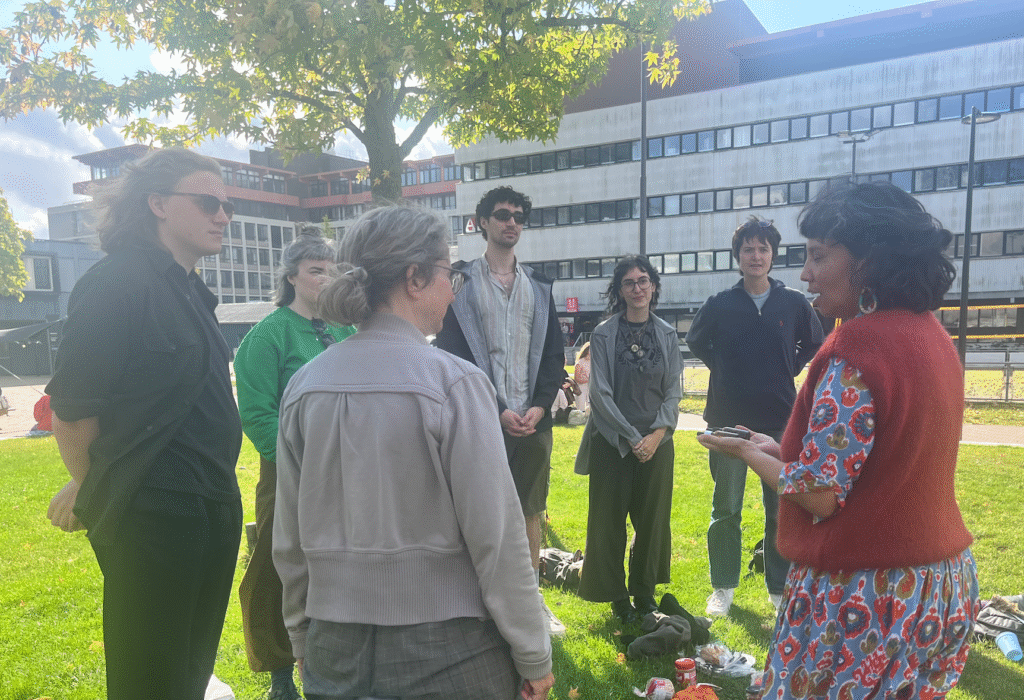
Dr. Joanne Peers inviting students to a water ritual. Photograph by Dr. Kristine Steenbergh
Last week, we had the honor of welcoming Dr. Joanne Peers (Researcher at the Origins Centre at The University of Witwatersrand, South Africa) for a lecture to our Research Master Students and colleagues. She was in Amsterdam in the context of her seed grant in the Engaged Scholarship against Climate Change (ESCC) project. She generously shared stories about her experience of what she calls the “human and more-than-human ghosts of South Africa’s Apartheid”.
These often deeply moving stories enabled us to feel how liquidity is at the same time a topic, a method, and a way of living and sense-making for her, calling herself a “hydro-colonial researcher”, and how it interrelates human and more-than-human bodies through time and space.
Joanne conveyed her knowledge not just through words, but also through her pedagogy, encouraging us to actively engage with her research through our bodies and senses. Besides her use of tactile videos and imagery, we were invited to embroider hemp-printed photographs from South Africa’s colonial history, touch the dried wildflowers she brought, and become aware of the moisture on our own hands.
After the lecture, we went outside for shared breakfast and conversations on the grass, and Joanne invited us to experience the connective force of water. She had brought water from the Camissa (IIkhamis sa, meaning place of sweet waters otherwise known as Cape Town) river to share with us.
Thank you, Joanne, your visit was such a rich experience for everybody.

Leave a Reply